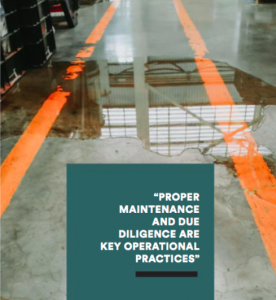Car wash waste demands a professional touch

The waste at your car wash site is your responsibility. This is the message from provincial regulators as well as key players in Canada’s waste industry. Good waste management is not only good for the environment, it's just good business.
“Car wash operators have to do their homework when it comes to maintaining the drainage systems of their sites,” says Leanne Whittaker, general manager, liquid/hydrovac division, GFL Environmental, a leading North American provider of diversified environmental solutions. She suggests that operators are sometimes confused about regulations and their responsibilities as business owners. “We often find ourselves in the situation where we have to explain the legalities of waste management to a business owner that sees hauling effluent as being something that can be skirted.”
Her colleague Michael Tersigni, commercial territory sales manager, GFL Environmental adds that often he sees wash companies try to stretch out the length of time between car wash catch basins and interceptor pump-outs. “This can end up with car washes having blocked lines and floods, problems that end up costing more money,” he says, noting that a site that was overdue for service can discover they require more waste sludge to be removed, and more time to ensure a clean and properly flowing system.
“Blockages caused by sludge and overcapacity interceptors and/or holding tanks can sometimes cause floods or other issues in the system. This means the site has to be shut longer while work is underway and cars are not getting cleaned. When cars are not being cleaned operators don’t make money,” says Whittaker, who notes that a standard-sized operation could see vacuum trucks take about two hours to complete a typical waste removal service. Operators are charged an hourly rate plus the amount of effluent tonnage. She suggests operators look to see the times when car washes are least busy and schedule waste pickups accordingly. When service providers arrive operations need to be shut down. The greater the amount of sludge or blockages to clear, the longer the site is closed to business.
Both Tersigni and Whittaker point out that companies such as GFL Environmental don’t enforce the regulations, rather they advise, seek understanding and help establish best practices.
“Proper maintenance and due diligence are key operational practices,” says Tersigni. “Be proactive and don’t wait for something to happen.”
“A well-maintained car wash will provide efficiencies because the system is better able to do the job it was designed to do,” says Whittaker mentioning that smaller more frequent pickups are better. “If there are build-ups of heavy sludge and oil, and the system is not flowing, our crews have to spend more time on-site and this costs operators more in the long run. Having tanks that are higher than 50% often means overflow pipes are already full.”
Here, Tersigni notes that having a professional company undertake the work has its advantages. “Only licensed and regulated operators can legally transport and dispose of waste from car washes. We have every tool in the shed and can handle whatever challenge the service demands, from flushing and snaking blockages to camera scoping collapsed lines. We also have to deal with a wide range of provincial and municipal regulations. Ultimately the waste being removed is the responsibility of the car wash operator and any issues with the disposal of the waste could potentially subject the operator to scrutiny.”


